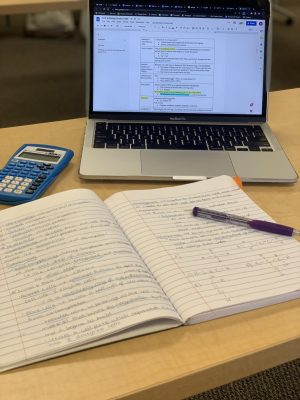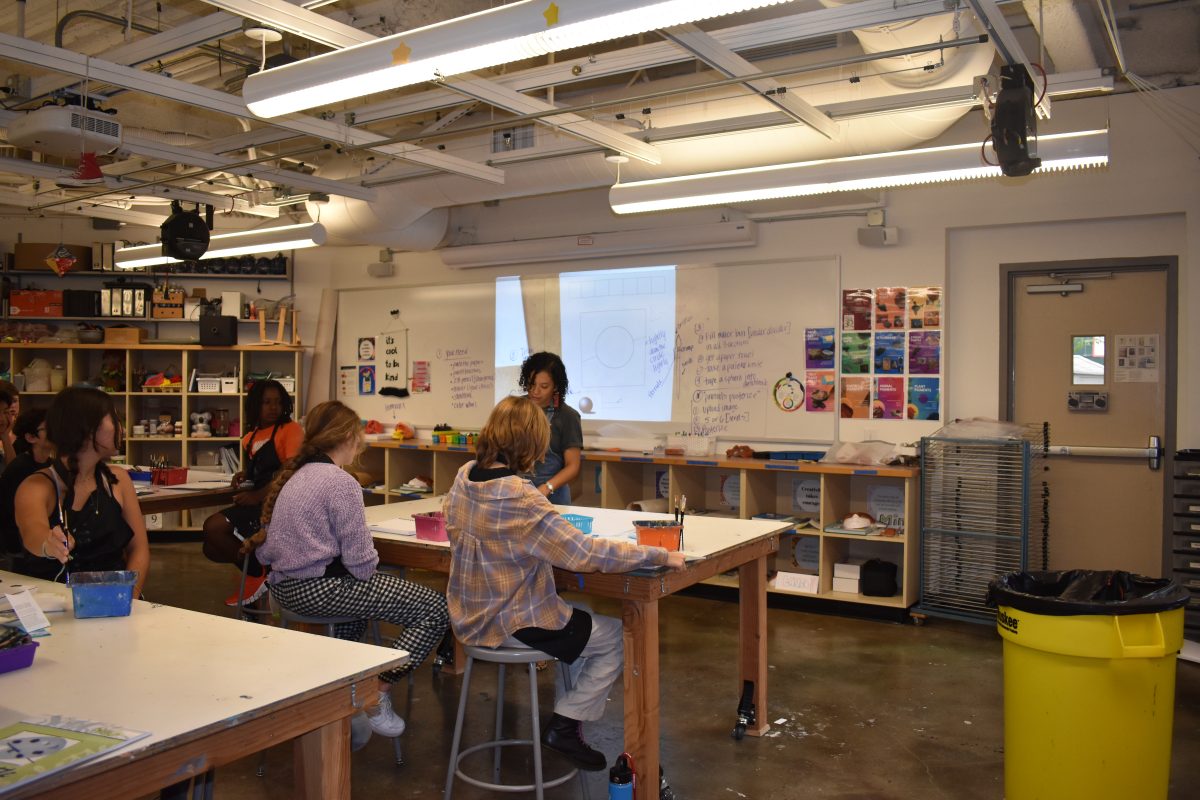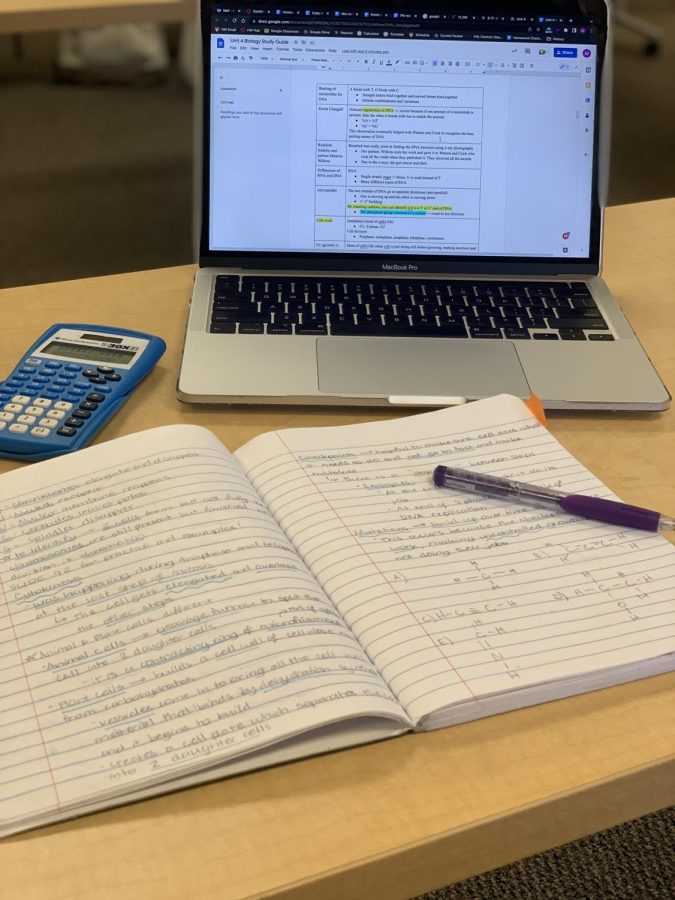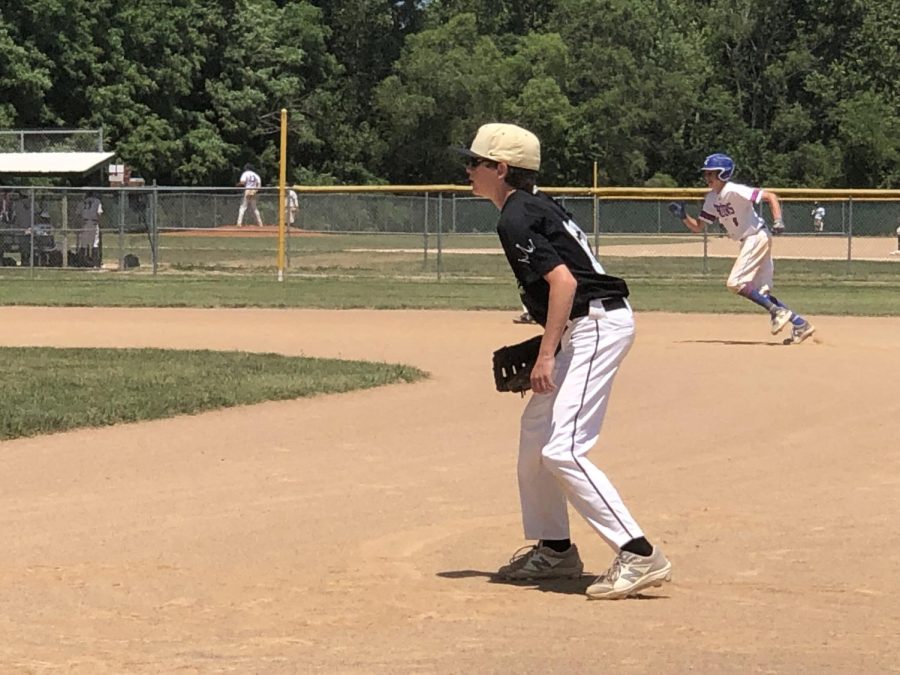POINT: Madison Huggins ’20
 STRESS
STRESS
Point:
When students are aware that the horrors of an assessment are approaching them on a given date, their minds become crowded with stress and anticipation that prevent them from performing to their best of their abilities. However, when students arrive in class to find that they knowledge of a certain subject will be assessed, they are not presented with the opportunity to stress themselves as much are encouraged to simply face the music. Because of the lack of opportunity to be overcome with anxiety, students will be able to perform to the best of their abilities and access information they know they have stored in their brains in a much more calm and relaxed environment. Also, pop quizzes do not usually count towards a large portion of a student’s grade because they are unexpected and are not meant to serve a representation of students’ performance in the class, but more of a personal assessment of their understanding of material. Because of this there is no valid reason for student to become overwhelmed and might end up performing better than they would in a normal testing environment. Students might even surprise themselves by unlocking abilities in memorizing information that will help them gain a better understanding of their learning habits.
Counterpoint:
Students have lives outside of school. With a test, there is no excuse not to be prepared because the test date was scheduled days, if not weeks, in advance. Everyone has busy days, and some days, students may not be able to complete an assignment for a valid reason. Some days of the cycle students have more free periods than others. With a planned test, students can look ahead and plan their studying based on this information. Since pop quizzes are unplanned, students can’t plan their studying because they only had one night to learn and apply a lot of material. Additionally, if the previous day was their busiest day of the cycle, they may not have been able to study the material thoroughly. If the quiz had occurred the day after, they may have done much better.
STUDY SKILLS
Point:
Although the last thing most students want is a quiz placed on their desk on a day they expected to cruise through, what appears to be such a curse may prove to be quite the blessing. When students are placed on the spot in a situation in which they must assess their knowledge of certain information, their worst fears may prove to be a reality. It might be proven that they actually are not as familiar with the material as they would like to believe. In this instance, a pop quiz will serve as a wakeup call to students who tend to convince themselves they have more knowledge than reality continues to show. Based on the questions they answer incorrectly on the pop quiz, students will be able to assess which category of questions they tend to struggle with, and will be able to prepare accordingly. This in fact will not only serve a major asset to students in comparison to classes who are not given pop quizzes, but will provide a more effective study method through targeting specific topics of difficulty. Therefore, there will be no need to devote endless hours to topics that are not areas of concern along with categories that could stand some work. This means students will be able to achieve not only a higher level of preparation in less time, but will be allowed more time to devote to other subjects.
Counterpoint:
For some students, memorization comes easy. For them, pop quizzes may not be difficult. However, many students require constant repetition in order to fully grasp a certain concept. Since pop quizzes are not scheduled and typically occur the day after an assignment is given, students are not able to study for them. Just because students have done the reading from the night before, does not mean they will remember every specific detail. Because pop quizzes tend to test on specific details, a student who requires hours of review to understand a concept is at a severe disadvantage. For these students, a pop quiz will only stress them out without teaching them any study skills.
 COUNTERPOINT : Anusha Mathur ’20
COUNTERPOINT : Anusha Mathur ’20
REINFORCING INFORMATION
Point:
Although pop quizzes are often accompanied by groans of disappointment from students when announced, there is definitely a method to this madness. Since pop quizzes usually cover information taught in class either the day before or recently, they will not allow students to simply listen in class for that short 40 minute period and then let the knowledge they just acquired simply slip from their memory the moment the step out of the classroom. Students will tend to do this with the assumption they will not be needing the information anytime soon and that they can get by by cramming all the necessary information into a six hour cram period the night before. The questions asked of students through pop quizzes will make sure new information acquired stays fresh in students’ minds.
Counterpoint:
Pop quizzes are not an accurate measure of a student’s potential in a class. The questions on pop quizzes are usually about specific facts from an assignment, not about general themes or concepts. Just because someone does not remember the specifics of the material, it does not mean that they do not understand a concept. Similarly, a student can understand random facts from a certain reading without grasping the general idea. Memorizing arbitrary facts from material is not a true indication of how much information a student has retained.
MOTIVATION TO PAY ATTENTION
Point:
Often times get an idea into their minds that it is completely acceptable to sit quietly in class while the information being taught flies in one ear and right out the other. However, if students are aware of an expected assessment on information they have been taught at any given moment, they will make sure that their complete attention is directed towards the lesson in motivation to avoid doing poorly on a quiz that could be presented any day.
Counterpoint:
Pop quizzes encourage students to look for possible pop quiz questions instead of trying to understand the material. When a pop quiz can be sprung on students at any moment, they may spend class time trying to memorize specific details of a lesson. This means they are less focused on the material being taught. In the long term, it is better for students to retain the main concepts of lessons. However, pop quizzes encourage students to obsess over the little details.
CONCLUSION
Point:
In conclusion, although the subject of pop quizzes is one which students immediately tend to reject, what may seem to appear as a curse can be much more of a blessing in many ways. This is proved in the alleviation of students’ stress in the testing environment, a higher level of preparation for the actual test to come because of exposure to their topics of struggle and a greater level of motivation to not only pay attention but to fully absorb the material taught in class. Students are also handed an opportunity to have information reinforced to the extent that it stays prominent in their minds long after the lesson. Pop quizzes seem to provide more help than harm to students in a variety of ways that ultimately end up not only enhancing their performance but boosting their overall confidence in the testing environment, which is achieving what our teachers strive to instill in their students in the first place.
Counterpoint:
Pop quizzes are not a true test of students’ comprehension because they include questions on random details rather than comprehension of the material. Pop quizzes are also ineffective at motivating students to pay attention because they encourage students to focus on memorizing little details rather than trying to fully understand the main concepts. Additionally, some days are busier than others, so some students have more time than others to thoroughly understand the material. This means that pop quizzes are not a fair indication of whether a student is consistently studying because a student’s result can vary based when the quiz occurs. Because pop quizzes make students less focused on the material and are unfair, they should not be allowed.








